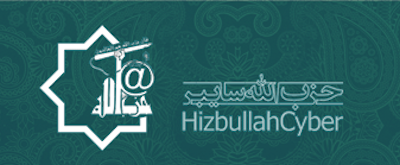![]()
Sun, Oct 02, 2011 | The Meir Amit Intelligence and Terrorism Information Center
Iran and the Cyber Jihad
Last weekend the second Cyber Hezbollah conference was held in Tehran. Cyber Hezbollah is an organization whose establishment was first reported several weeks ago. The conference was held on the occasion of the Holy Defense Week, marking the beginning of the Iran-Iraq War (September 1980), and was titled “Clicks of Resistance”. Fars News Agency reported that the aim of the conference was to show appreciation for jihad and resistance activists operating in cyberspace as well as bloggers whose blogs are dedicated to jihad and sacrifice, and who attract considerable interest.
During the conference, Cyber Hezbollah member and spokesman Soheil Karimi read a statement emphasizing the need to spread the culture of sacrifice also in cyberspace (www.hizbullahcyber.com, September 22).
The main lecture of the conference was given by Dr. Hassan Abbasi, head of the Center for Doctrinal Analysis for Security across Frontiers, affiliated with the Revolutionary Guards. Abbasi is considered one of the major theoreticians of the radical faction in the conservative camp and the Revolutionary Guards.
Abbasi warned about the close monitoring of Iranians’ web traffic by Western intelligence services, particularly the American National Security Agency (NSA). Addressing students who use the internet, he said that even though they currently do not possess important information that can be of interest to foreign intelligence services, they must exercise caution on the web, because someday they will have important and sensitive information that can be exposed by those who follow their online activity. He noted that the NSA is the organization that actually controls the world wide web.
Abbasi said that the major concern is that a considerable part of the information on young Iranian men and women and their activity is currently online. While this doesn’t mean that the internet is to be avoided, one should surf the web wisely and remember that it is monitored by Iran’s enemies, who wage a war against Muslim society and the religion of Islam. Iran’s online presence, Abbasi said, is like an operation in enemy territory, and the principles of asymmetrical warfare should also be applied in cyberspace — that is, existing online tools should be used against the enemy.
Abbasi added that the United States intends to carry out a massive September 11-like cyber attack on Iran. He warned that the United States is looking for excuses to instigate wars across the globe to rescue its declining economy. Accordingly, Cyber Hezbollah activists must act cautiously to foil the plots hatched by the enemies and not give them any pretext to take action against Iran. They must also act in the cultural sphere against American websites and spread the message of the Muslim world in cyberspace (Fars, September 23).
Ya Lesarat, a weekly affiliated with the radical conservative organization Ansar Hezbollah, reported the launch of Cyber Hezbollah in early September. According to the report, the organization was established in June 2011 as a spontaneous collaboration of pro-regime activists who worked against regime opponents in cyberspace during the 2009 riots. The organization held its first conference in August 2011. A memorandum released by Cyber Hezbollah after its establishment specified its goals and objectives, which include coordinating between pro-regime activists operating in cyberspace, offering them courses and training, holding meetings aimed to acquaint the activists with cyber warfare tactics, and mobilizing the activists for various online activities (Ya Lesarat, September 1).
Meanwhile, Passive Resistance Organization chief Gholam-Reza Jalali discussed the efforts made by his organization to deal with cyber threats. Speaking at a press conference for Holy Defense Week, Jalali announced that cyberspace is one of the key focus areas of the Passive Resistance Organization in dealing with enemy threats.
Jalali specified the actions taken this past year to improve cyber preparation, including the establishment of a Cyber Defense Headquarters under the Armed Forces General Staff, which works together with the intelligence and telecommunications ministries and the National Security Supreme Council, and the launch of an experimental cyber defense study program in Tehran’s Imam Hossein University. In addition, he said that 500 cyber defense drills are expected to take place this year to identify and correct weak spots in the country’s executive systems (IRNA, September 26).
Iran’s English-language Press TV network recently reported that the first national cyber defense conference is scheduled to take place in Iran on January 25-26, 2012. Sa’id Ghazi Maghrebi, the scientific secretary of the conference, reported that the conference will provide a platform for cyber experts to present articles and give lectures on cyber defense (Press TV, September 15).



 RSS
RSS











Iran and the Cyber Jihad | Middle East News, Articles, Background, Opinion, Analysis http://t.co/ZEQ5HThP
Iran and the Cyber Jihad | Middle East News, Articles, Background, Opinion, Analysis http://t.co/ZEQ5HThP
Iran and the Cyber Jihad (they seem to have arranged a few conferences as well): http://t.co/Oe6khmKe
United States is looking for excuses to instigate wars across the globe to rescue its declining economy. http://t.co/CeMZGF6f